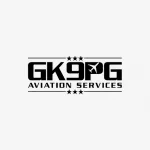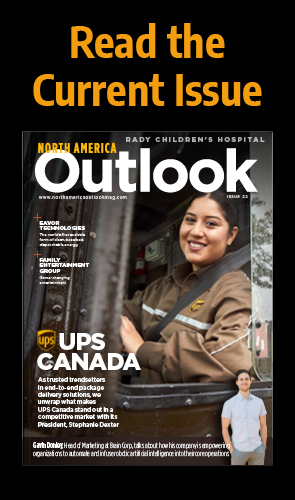STEADFAST RELATIONSHIPS
The air cargo market is a complex business, with distinct customers and needs across the many markets in which Delta Cargo operates. Strong relationships with partner airlines and suppliers provide the company with local knowledge and expertise in key global markets.
“Business partners are critical to our success, not only to support our growth and innovation, but also to enable us to run our own logistics smoothly,” notes Walpole.
“We have a critical network of partners supporting our operations and sales processes across the globe, who are a key extension of the Delta Cargo network and brand,” he says. This network includes ground handling agents (GHAs) who handle front-line operations at smaller cargo stations and cargo sales agents (CSAs) who represent Delta Cargo in competitive international markets.
The company also utilizes its extensive network of airline partnerships and alliances to offer customers access to an even broader global network.
“Our alliance partners are some of the best cargo airlines in the world,” comments Walpole.
“Through Delta Cargo’s coordination with each of these partners, we have worked to create a more seamless experience for our customers, regardless of who is operating the flight or handling the goods on the ground, in an effort to save customers time and effort,” he continues.
Enabled by its Blue Skies alliance with Air France-KLM and Virgin Atlantic, Delta operated its largest-ever transatlantic schedule in the summer of 2023, with additional frequencies in key cargo markets like Paris and London. In the coming year, the company is anticipating another record transatlantic schedule with significant additions in Paris, Rome, Madrid, Milan, Dublin, and London.
Additionally, the Delta and Korean Air joint venture provides service from 16 different points in the US to Incheon and Haneda across approximately 23 daily flights, with Korean Airlines connecting to an additional 39 points. This allows Delta Cargo to offer customers capacity to destinations across Asia that it otherwise would not be able to serve on its own.
In North America, the Delta and Aeromexico joint cooperation agreement opens up the ability to provide service between the US and Mexico with 71 daily flights, with Aeromexico connecting to an additional 49 points within Mexico from its hub in Mexico City. With the growing trend toward nearshoring and the relocation of manufacturing operations to North America, this alliance offers more seamless solutions to connect these companies with their end customers.
These airline partnerships provide Delta Cargo with the ability to find win-win solutions for customers and improve the ease of doing business with the airline. For example, the company recently enhanced its partnership with Aeromexico to enable seamless connections for pharmaceutical shipments via the John F. Kennedy International Aiport (JFK) and Mexico City International Airport (MEX) route. This new and promising opportunity leverages the expertise and capabilities of both airlines, including state-of-the-art coolers at both hubs, and ultimately expands Delta Cargo’s pharmaceutical network to better serve customers.

DELIVERING A MORE SUSTAINABLE FUTURE
“We believe that social responsibility lies at the intersection of our values and expertise, guiding our work in our local communities,” says Walpole.
As such, Delta has committed to returning one percent of the company’s annual profits to the communities where it operates as a way to give back and make a difference. The company also offers many opportunities for its employees to volunteer their time, and Delta is the largest corporate blood drive sponsor for the Red Cross in the US.
Along with giving back to the local community, Delta Cargo has made impressive strides when it comes to sustainability.
“Delta has been very vocal about our focus on sustainability and has committed to working toward a more sustainable future of travel through various efforts, including investing heavily in the supply of sustainable aviation fuel,” he explains.
One of the primary ways in which Delta Cargo is contributing towards these sustainability efforts is through promoting Sustainable Aviation Fuel (SAF), a biofuel used to power aircraft that has a smaller carbon footprint than conventional jet fuel. SAF production is a renewable process, and currently, SAF can reduce life cycle emissions by up to 80 percent compared to fossil fuels, supporting a more promising future for transportation.
To support the company’s efforts to increase SAF supply and ultimately achieve the goal of replacing 10 percent of jet fuel with SAF by the end of 2030, Delta Cargo partners with its customers on SAF production deals, which in turn help those customers in meeting their sustainability goals as well.
“This work is not only good for the planet – it’s a business imperative. The people we care about, care about sustainability,” says Walpole.
“To date, the SAF agreements that Delta Cargo has signed with our clients and partners include commitments totaling approximately two million gallons,” he continues.
In addition to SAF, the company has been focused on other green initiatives, including utilizing BioNatur stretch film and pallet covers, which are 100 percent biodegradable and significantly reduce plastic usage. Since making the switch to BioNatur in 2021, Delta Cargo has prevented the equivalent of 18 million 16-ounce plastic bottles from ending up in landfills . Zero-emission electric ground support equipment (e-GSE) vehicles are also used in many of Delta Cargo’s warehouse facilities, which boast zero operating emissions, improved air quality, and reduced operating and maintenance costs.

THE PEOPLE OF DELTA CARGO
“While it can be easy to focus on the investments we make to improve our capabilities and better serve our customers, it’s important to emphasize that the single most important element to our success is our people,” comments Walpole.
Delta Cargo not only ensures that its people feel supported and encouraged to consistently grow in their fields, but also that their safety is prioritized above all else. To support this mission, the company has established programs to strengthen the overall culture of safety by encouraging employees to proactively identify and report any potential hazards.
The high standards of the company and its commitment to upholding a strong culture continue to underpin Delta Cargo’s world-class team.
“We work for a company that places a huge emphasis on living our core values – or as we call them, the Rules of the Road: integrity, resilience, care, and servant leadership,” enthuses Walpole. “These are more than just words to us – we have high standards and a commitment to holding ourselves and each other accountable.”
Additionally, Delta Cargo takes its diversity, equity, and inclusion goals incredibly seriously, understanding that they are the core foundations of an organization doing its part to drive systemic change.
“At every level of our company, we are committed to actively seeking diversity, boldly pursuing equity, and consciously promoting inclusion.
“We focus on cultivating a sense of belonging and advancing equitable opportunities for all employees to succeed,” Walpole continues.
Delta has established a Close the Gap strategy to increase the representation of women, Black talent, and other underrepresented racial and ethnic groups to ensure leaders are more reflective of the frontline workforce. This is along with its skills-first talent program which works to remove unnecessary barriers to certain roles across the company, such as four-year degree requirements.
“In addition to corporate-level initiatives, we’ve established employee-led committees in Delta Cargo to promote these same priorities within our own division and foster a greater sense of inclusion. Our employees are also active in various company-wide Business Resource Groups, which aim to ensure our people think, behave and lead in a way that reflects the values of our customers and the communities we serve,” certifies Walpole.

FLYING TOWARDS THE FUTURE
“All of our projects and investments are focused on our overarching goal of being a best-in-class belly cargo operator, which includes running the best operation, providing industry-leading products and services, and delivering the highest quality overall experience for our customers,” explains Walpole.
The seamless movement of goods and commodities is crucial, and no one recognizes that more than Delta Cargo.
Current demand for time-critical, temperature-sensitive air cargo solutions has been increasing, and the company continues to invest in enhancing its capabilities across its network. This includes a significant investment in an industry-leading cold-chain facility at New York City’s JFK, as well as continuing to expand its footprint by adding new certified stations to its already vast pharmaceutical network, with the most recent additions in Philadelphia (PHL), Chicago (ORD), and Raleigh (RDU). The company is planning more additions to this network in the near future.
Earlier this year, Delta Cargo opened its JFK Cooler – a 16,000 square foot (sqft), state-of-the-art facility – to enable the transport of cold-chain products at a consistent temperature throughout their entire journey. New York is the biggest European gateway for pharmaceutical movements, and the $15 million investment unlocks connectivity to a wide network of markets for cold-chain customers by leveraging Delta’s extensive network out of JFK.
“We’re very proud of our new facility, which is the largest of its kind at JFK and features separate temperature zones for different types of medicines and pharmaceutical products, as well as dedicated zones for other perishables such as seafood and fresh produce,” Walpole notes.
In pursuit of its goal of running the best operation in the industry, Delta Cargo recently implemented its new Hub Control System (HCS) across 11 key hubs. HCS is a new workload steering tool that enables significantly improved operational performance in hub stations where they handle high volumes of cargo transfers. This new system equips warehouse teams with the ability to streamline the transfer process and more efficiently prioritize shipments.
Since its implementation in April of this year, the new system has resulted in a 14 percent improvement in overall transfer connection performance in Delta Cargo’s largest hub in Atlanta, Georgia (ATL), and a 24 percent improvement in average offload recovery time – expediting customer recovery times by nearly two hours.
“Our market continues to change and develop, and it is critical to ensure our services and capabilities are constantly improved in order to best serve our customers’ evolving needs,” explains Walpole.
Looking towards the future, Delta Cargo is continuing to invest in the advancement of technology and process improvements.
This includes the implementation of a new industry-leading operating system which will enable enhanced operating functionality, including streamlined acceptance processes and improved load planning, ultimately providing greater transparency and flexibility for customers.
Delta Cargo also has several other exciting initiatives in the works to expand and improve its product offering, including introducing a new tracking technology that will provide an increased level of visibility to shipments’ locations and status throughout their journey, allowing for better proactive service recovery.
These initiatives help to further advance the company’s goal to consistently provide the highest quality service for each and every customer, no matter their shipping needs.
From transporting life-saving pharmaceuticals and organs for transport, to fresh flowers and seasonal produce, Delta Cargo’s strong portfolio of products provides world-class service for every customer’s needs, ultimately making a difference in communities worldwide.
“We are in a unique position where we can make a lasting impact on individuals and communities. Whether it’s through the quick transport of an organ that results in a successful life-saving surgery, or the transport of emergency relief supplies after natural disasters, we are proud to connect the world and make a difference,” concludes Walpole.





































